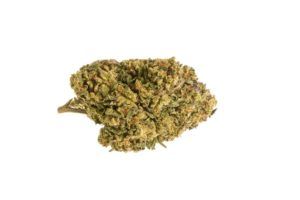When it comes to cannabis, Cannabidiol (CBD) tends to receive the most attention for its array of health benefits without the high typically associated with weed. Mountains of research over the decades have expanded the list of ways CBD is good for us, especially when it comes to aiding depression, anxiety, and nausea. So, it’s no wonder CBD is touted as a miracle drug.
On the other hand, Tetrahydrocannabinol (THC) is more often attributed to its stimulating psychoactive effects, marijuana is known for. Often THC is blamed for the negative stereotypes about marijuana. However, researchers have found that THC contains its own growing list of health benefits showing that THC is good for far more than the high it’s so famous for – including brain health. So this week, we want to share 3 of our favorite benefits THC has on our brain.
Protects Brain Cells
This one tickles us the most of THC’s health benefits. Many myths and stereotypes about weed paint images of lazy couch potatoes who waste time and cannot form a coherent thought. Sometimes these assumptions go so far as claiming that weed is bad for our brain. But like many stereotypes, this one is inaccurate.
The truth is, studies show that, like CBD, THC is a neuroprotective antioxidant. This means that THC actually protects your brain cells from damage. Fun Fact: A 2014 study found those who had THC in their systems were 80 percent less likely to die from traumatic head injuries than those who were THC-free.
Stimulates Brain Growth
Not only does THC protect your brain, but it promotes brain growth too! See, there’s something called CB1 receptors in our brains that THC activates. When this happens, it stimulates a process called “long-term potentiation,” which helps our brain learn.
Scientists have been wondering how various drugs affect the hippocampus — which is part of our limbic system and responsible for our memories and emotional behavior. Unlike other areas of our brains, the hippocampus can grow new neurons throughout life. Drugs like heroin, alcohol, and cocaine hinder new cell growth in the area, which is one reason scientists are so interested that weed has the opposite effect.
Restores Brain Function
A study done on mice by scientists from the University of Bonn and The Hebrew University of Jerusalem analyzed the effects of low doses of THC on the endocannabinoid system (ECS) in mice. The ECS is vital for the health of brain cells and the stability of internal systems. So a sign of a rapidly aging brain occurs when the ECS slows down, which is true for humans.
They found that the brains of the mice aged 12 months treated with THC “closely resembled those of THC-free animals aged 2 months.” This means the brains of the older mice became more active and agile, resembling the brains of younger mice, seemingly slowing down or even reversing the effects of aging on the brain. Even more remarkable, the older mice showed increased learning and response times after the treatment.
While more research is needed as this was an animal study, it’s still exciting for its potential in treating diseases such as Alzheimer’s and dementia.
Final Thoughts
Despite Marijuana’s increased legal and social support, numerous negative assumptions remain, but research indicates otherwise. As we discussed today, evidence shows that THC actually
Katrina Paulson



